11 February 2020
Second Talks-on-the-Hill looks deep inside the human body
John Lyon’s second annual Talks-on-the-Hill proved a detailed examination of the human body, from the viruses inside us to the way the outside world affects us.
The John Lyon Excellence Programme lecture series, Talks-on-the-Hill, in which all residents of Harrow-on-the-Hill are invited to hear talks based around on a single topic saw pupils, a teacher and invited subject experts talk about The Body in the Boyd Campbell Hall on Thursday 6th February.
Having been introduced by the evening’s host, Upper Sixth student Shaurya Garkhel, the first talk was given by Year 7 pupil Harjeevan Bains, who introduced the audience to the human brain, explaining how with its help we had all become superhumans, capable of flight, medicine and peace, amongst other things.
The first invited guest, Professor Derek Gilroy then talked in detail about vaccines and how they work to combat viruses in our bodies. The Professor of Immunology and Head of the Centre for Clinical Pharmacology at University College London, who is a John Lyon parent, also spoke with conviction about the dangers of the growing ‘anti-vaccination’ movement.
Finishing the first half, John Lyon Teacher of Biology Edward Mendelblat focused not on what is useful within the human body, but what bits of us now serve no purpose; those vestigial structures lost to evolution such as the tail, and about bodily parts and functions we retain for no discernible use, such as wisdom teeth and goosebumps.
Year 7 pupils Madisan Nimalathasan and Rafay Raja opened the second part of the evening with a look at how our environment affects our body, some of which we can’t control but other which we can, such as how much and how well we sleep, to our use of an increasingly large range of connected devices.
A-Level Biology, Chemistry and Mathematics student Rayyan Hussain, looked into the little-regraded world of natural remedies and asked if they could be the solution to a healthy body, and especially advantageous owing the increase in resistance to antibiotics.
Last to take to the stage was keynote speaker Jane McAdam Freud, a renowned artist whose work is shown in exhibitions across the world. Using images of her own works which all focus on the body in a variety of ways, she described how she as an artist compares the space of the body in relation to the space in the studio and how her work is constantly moving and evolving.
Lively questions and answers at the end of each session drilled down on some of what had been heard in the talks, with plenty of questions on human tails, remedies to illnesses and, topically, on Coronavirus to the Professor of immunology.
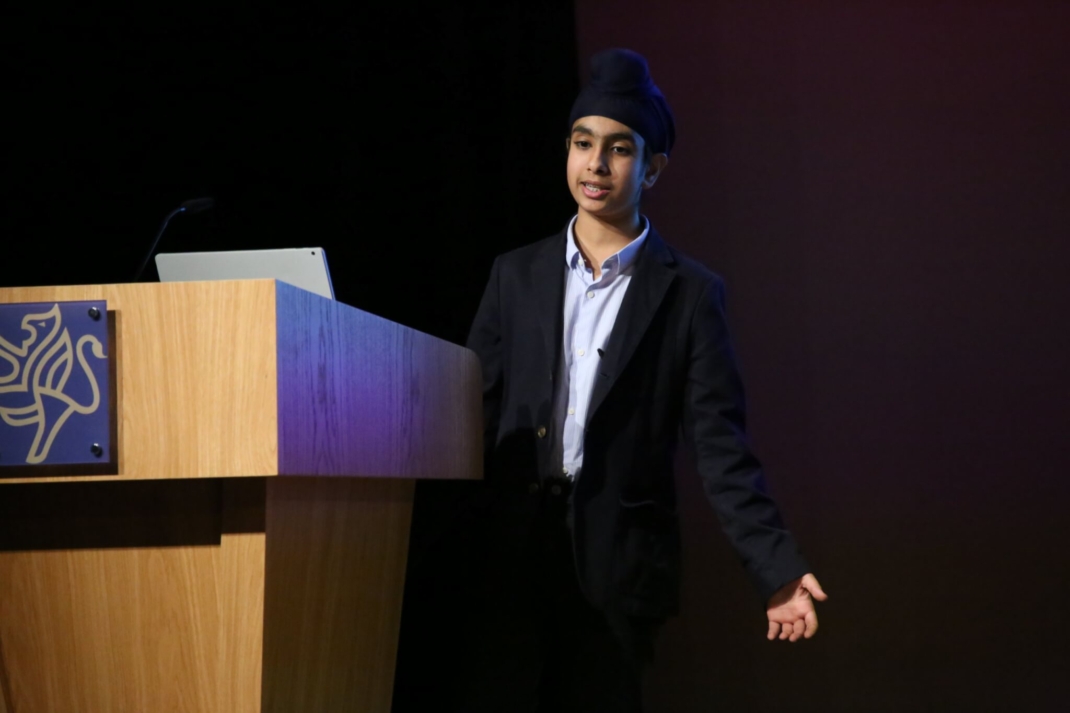
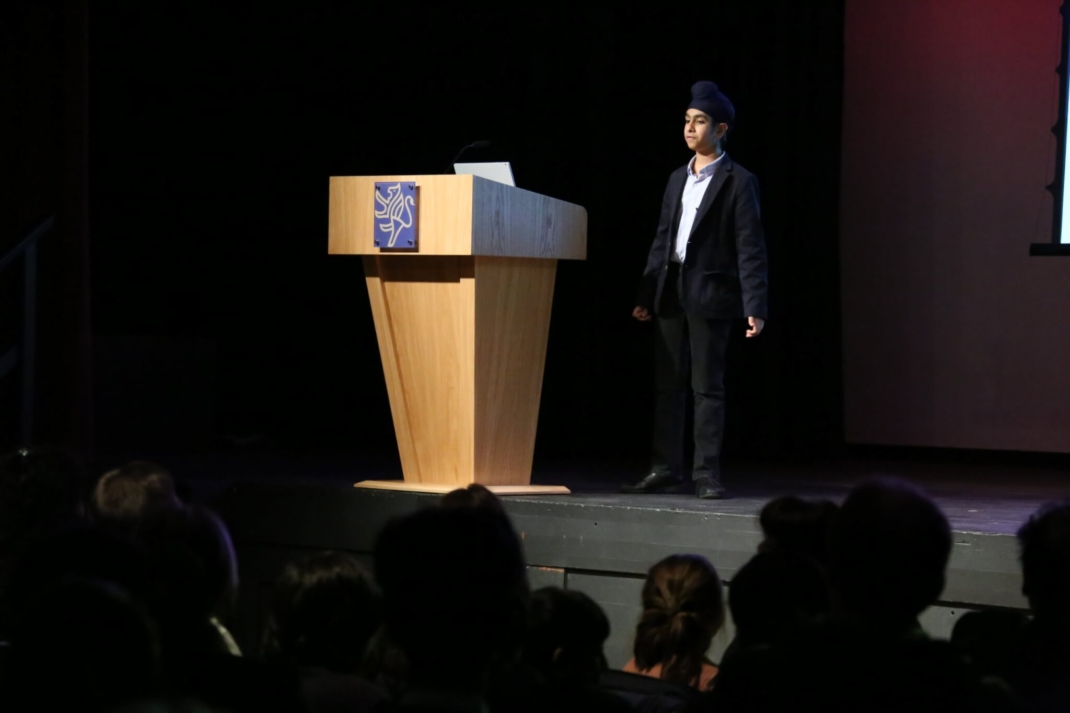
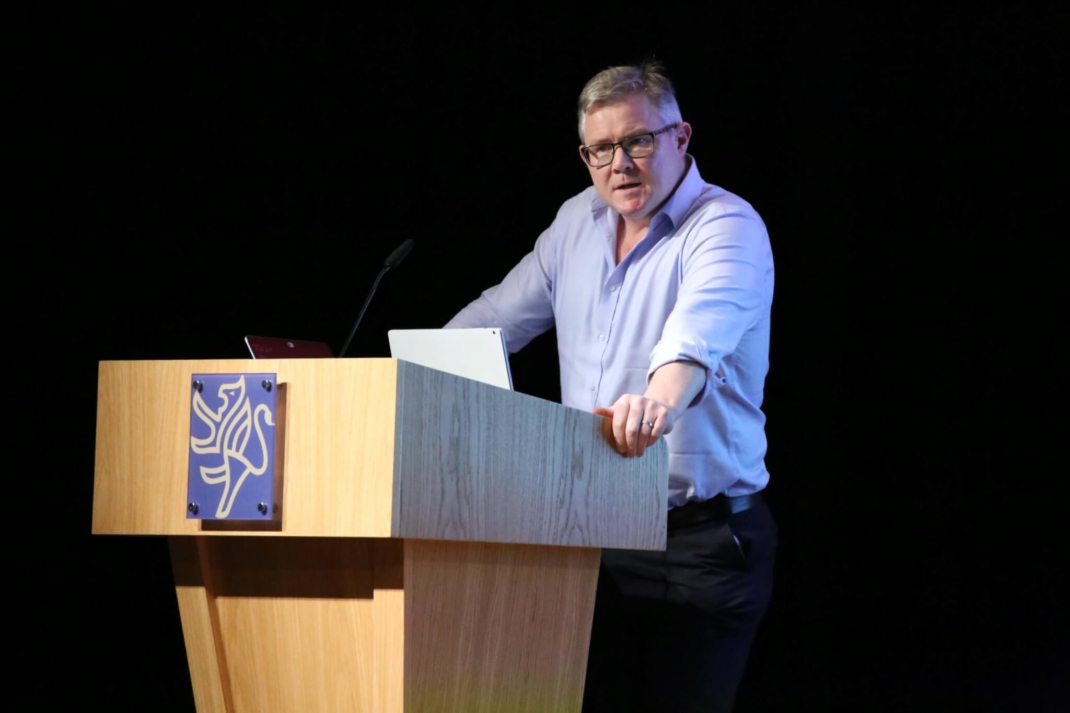
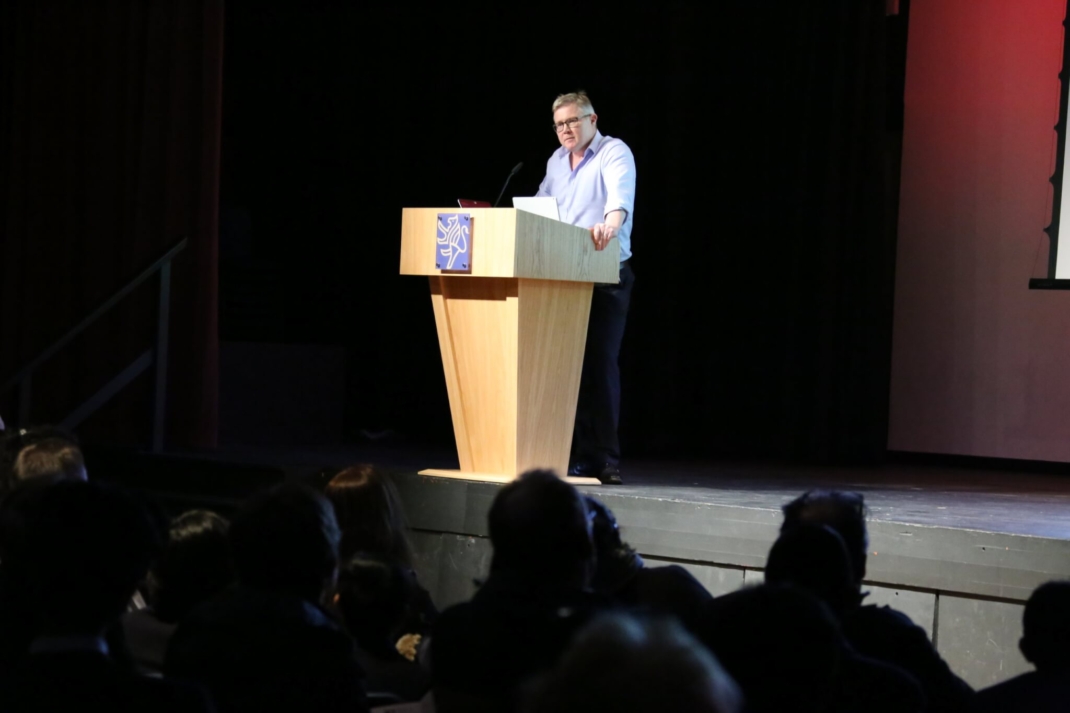
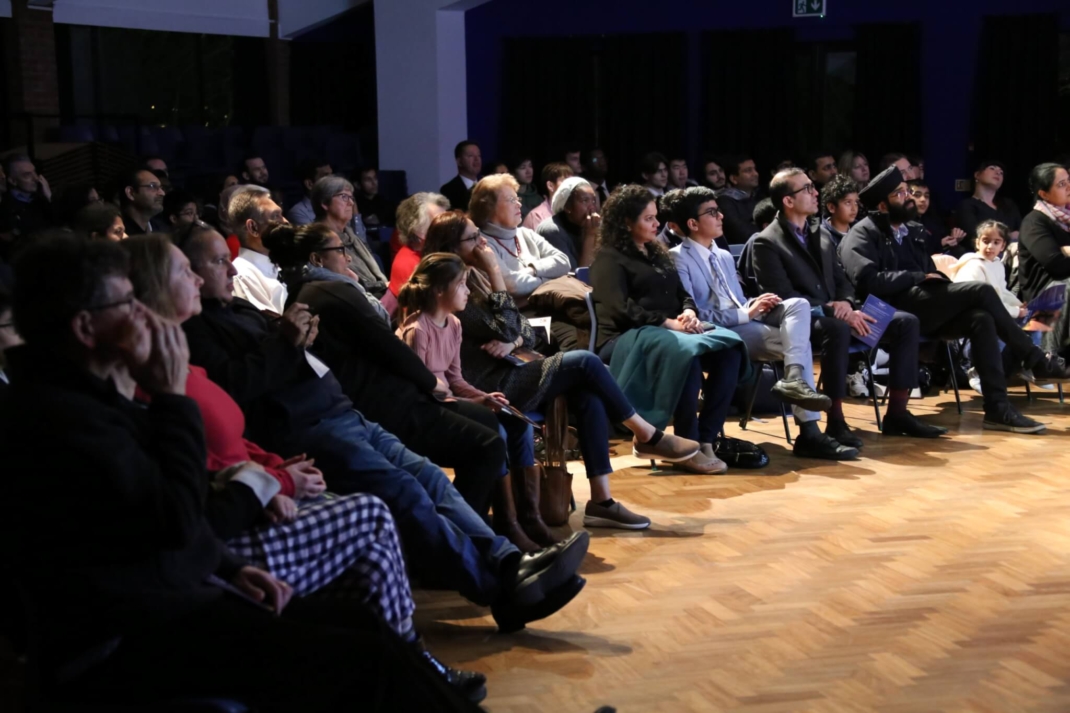
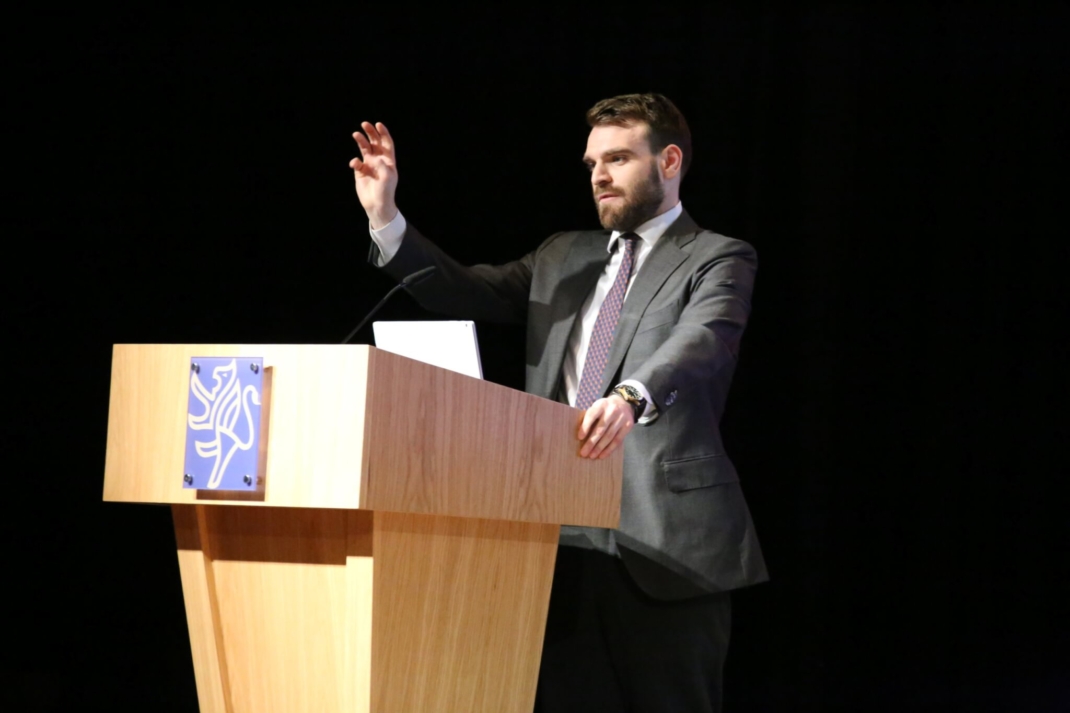
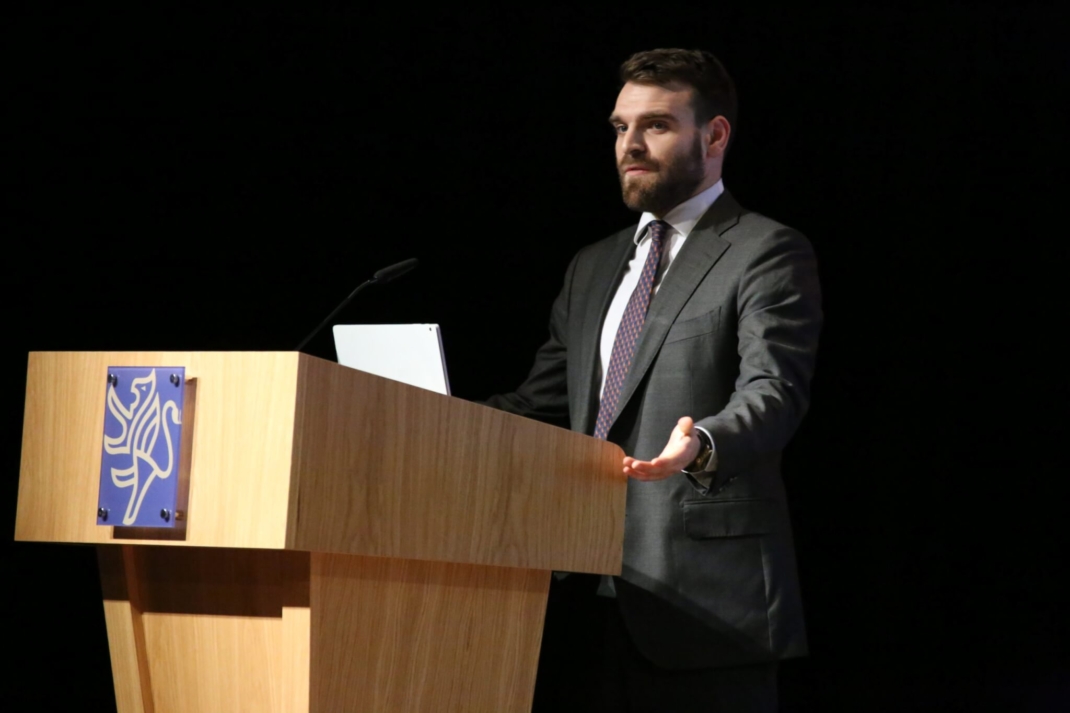
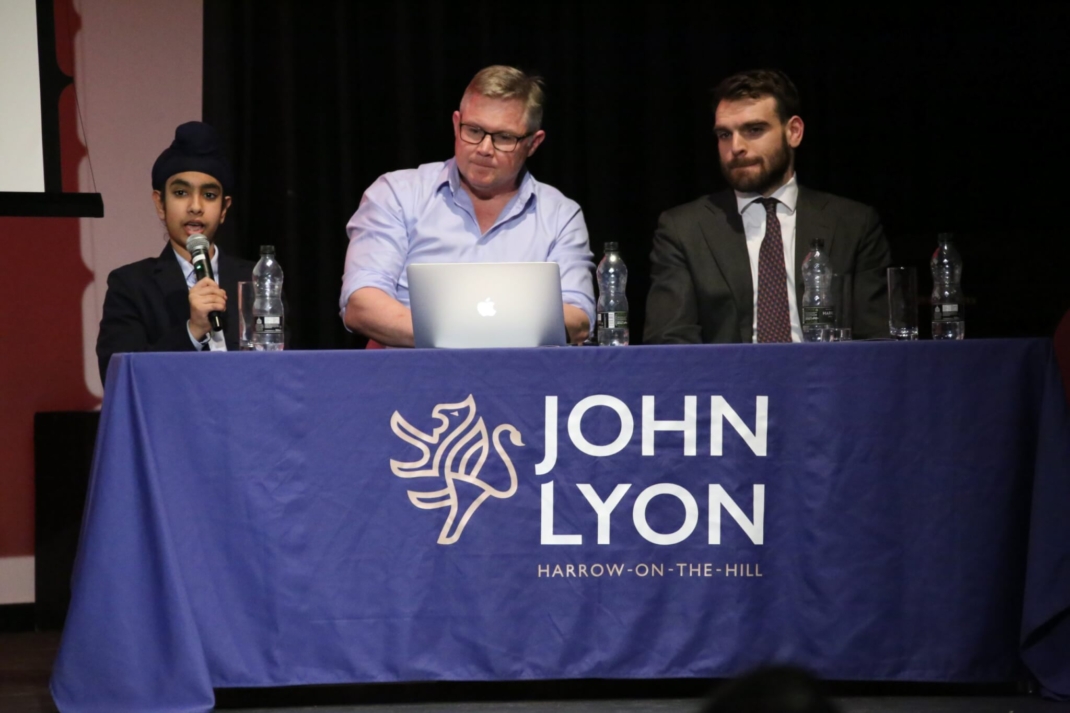
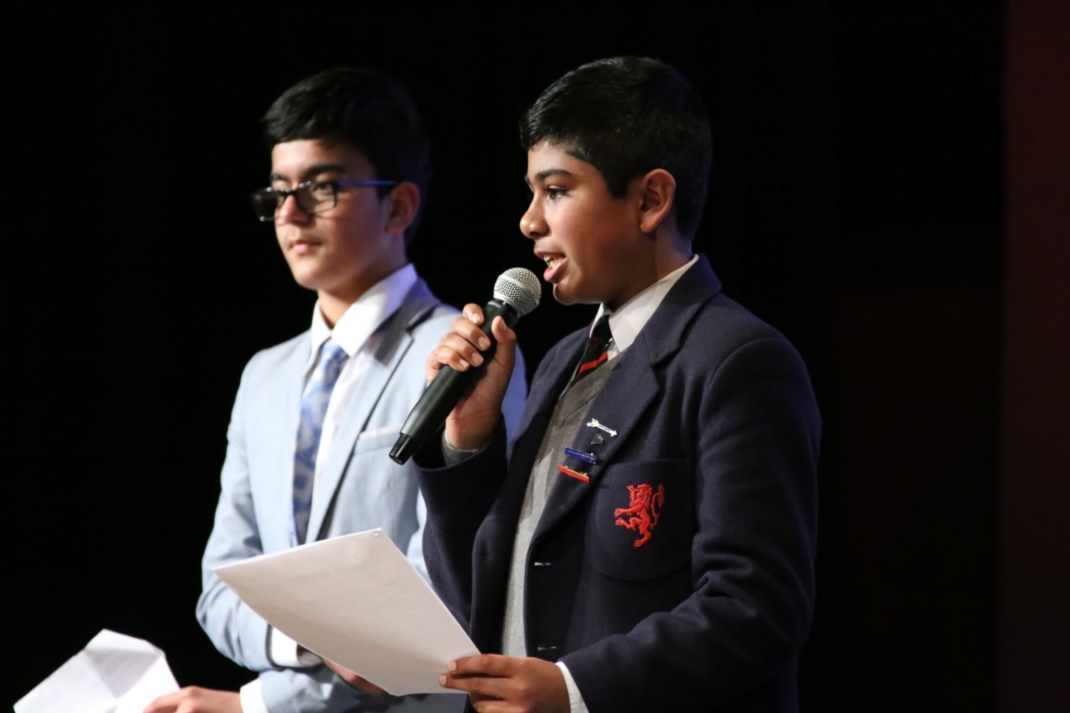
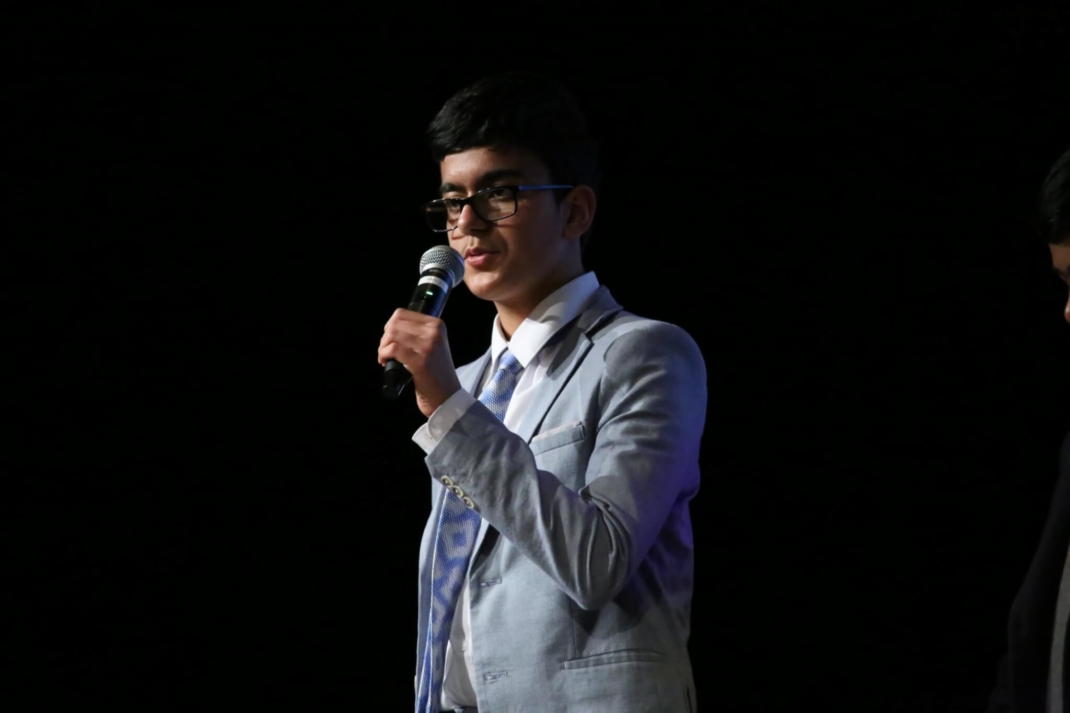
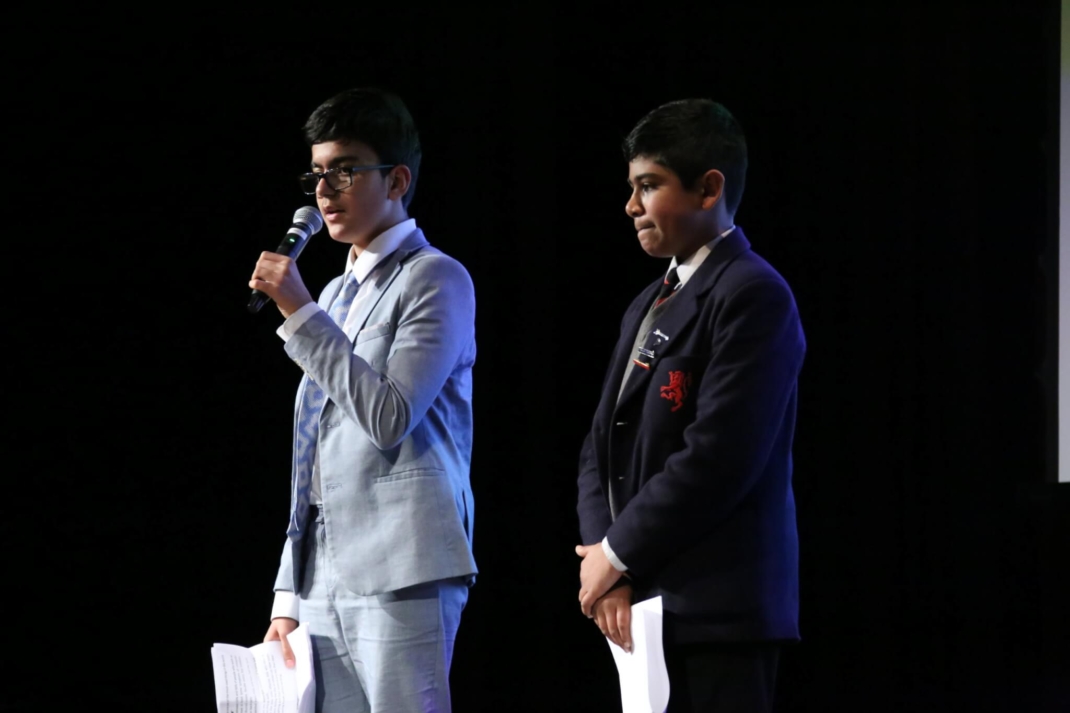
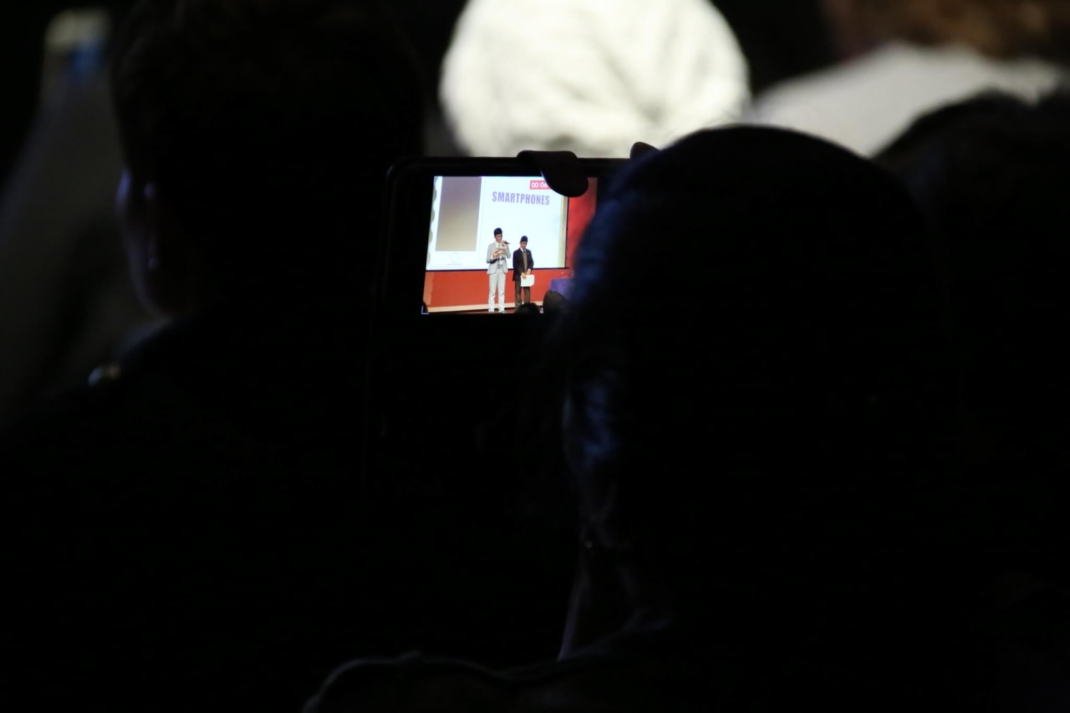
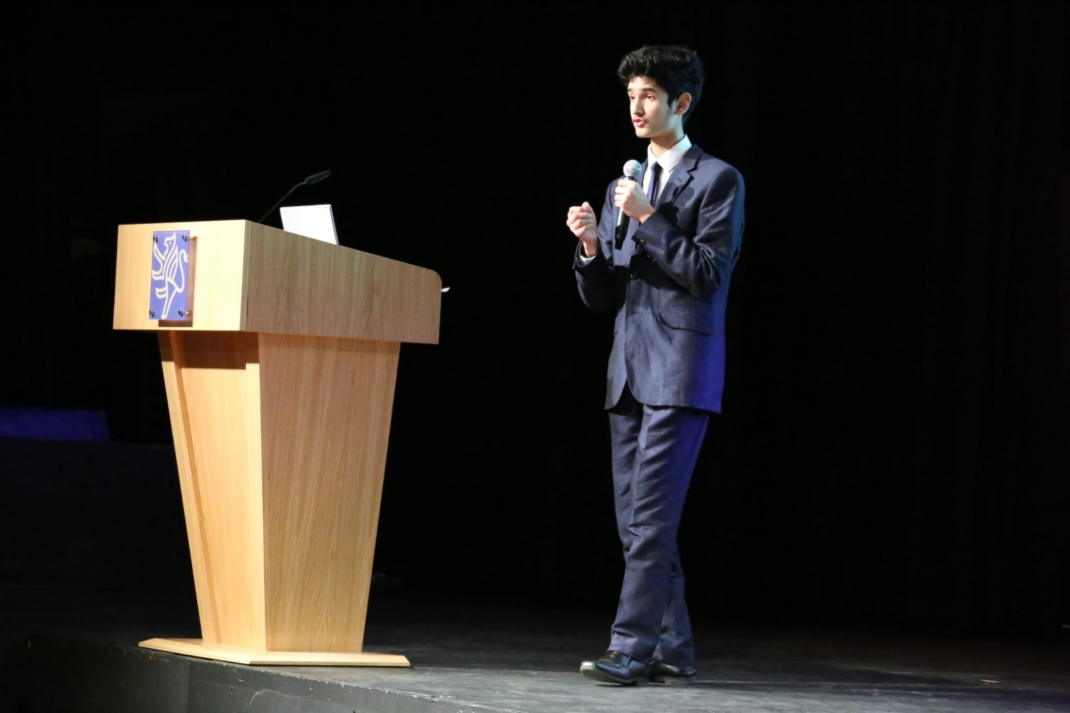
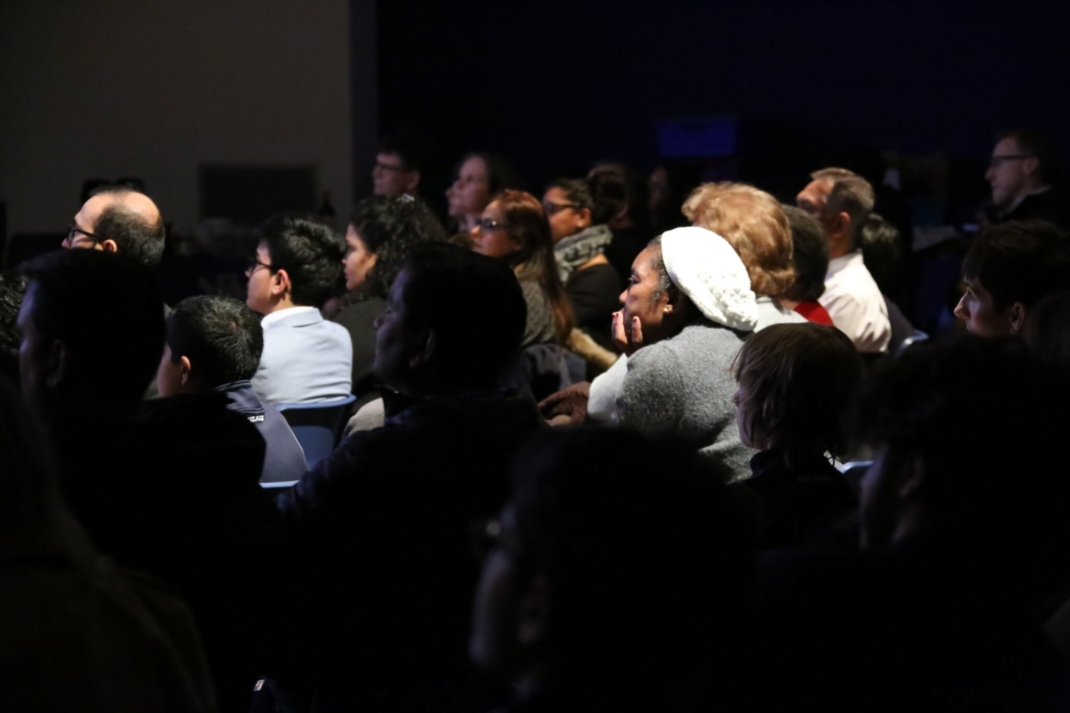
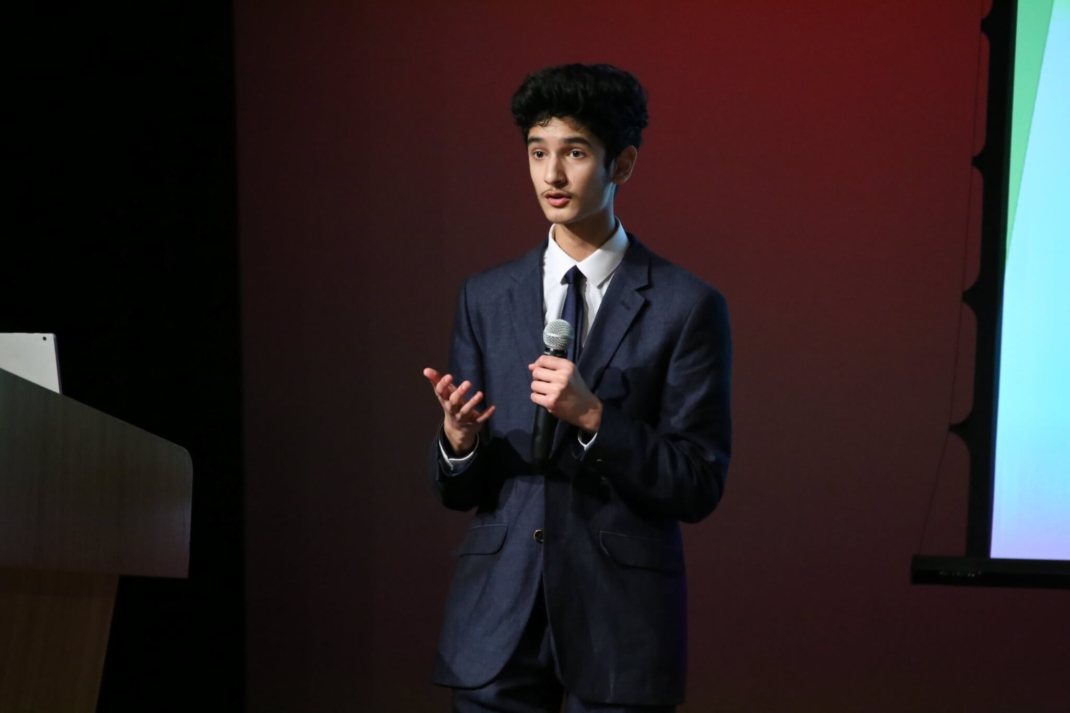
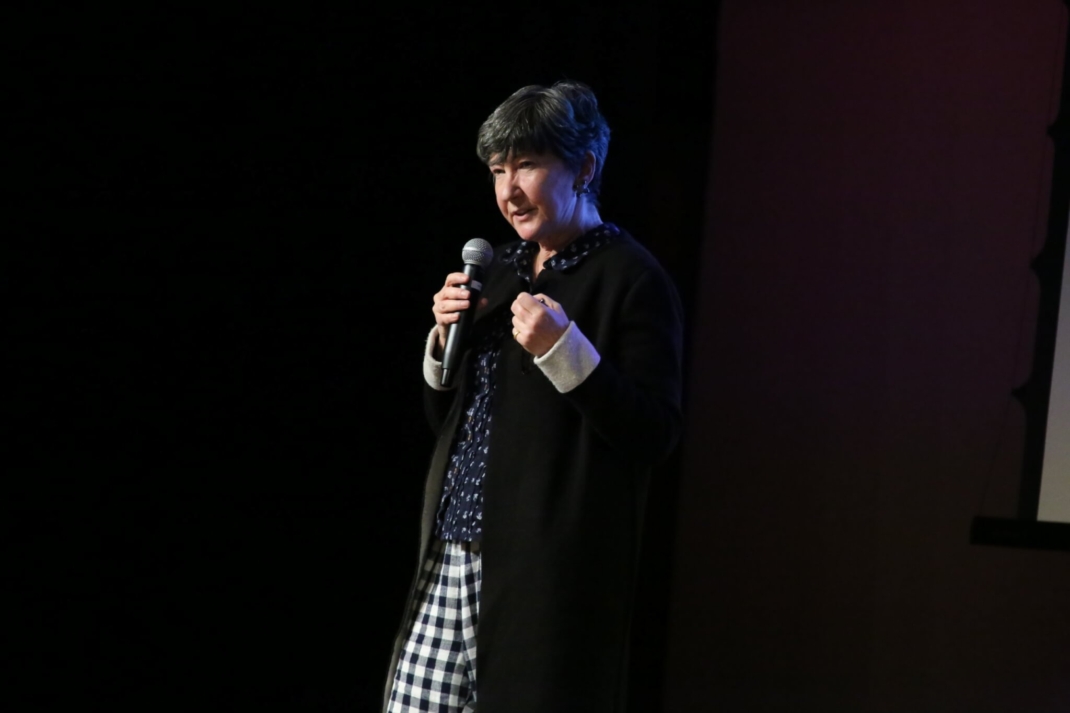
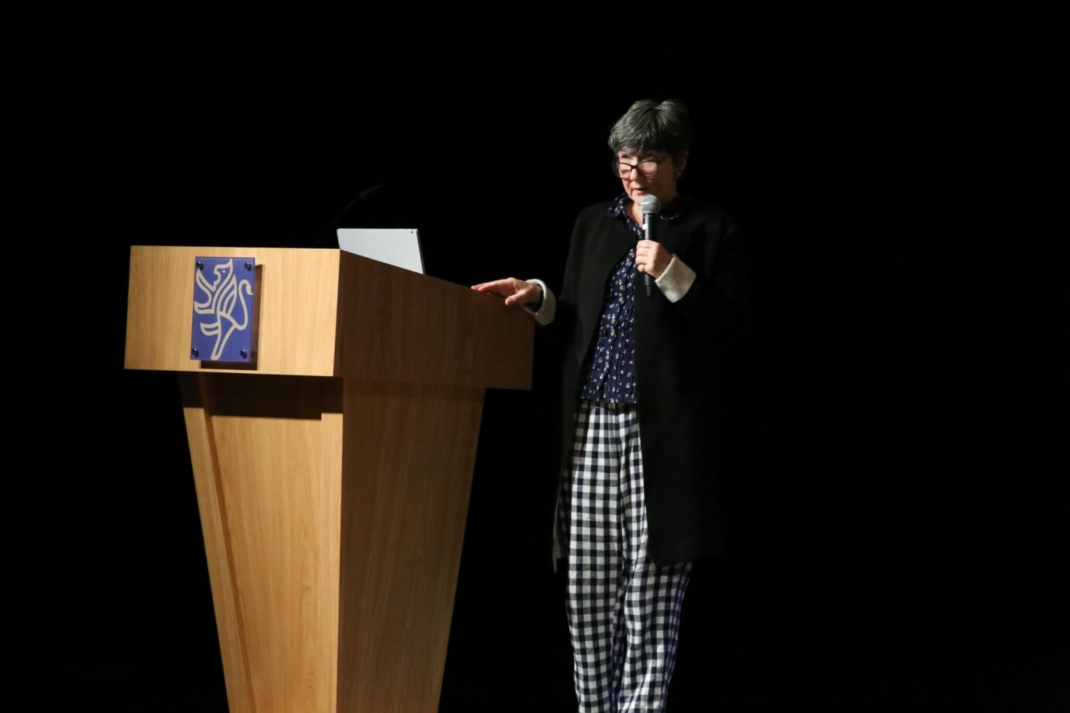
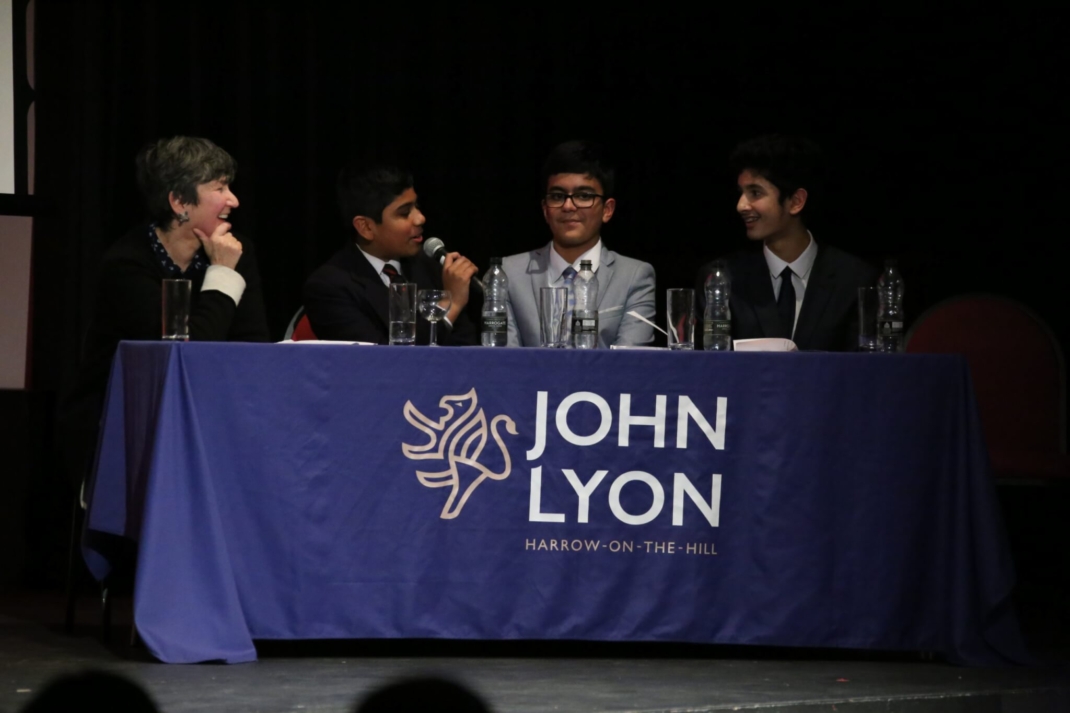
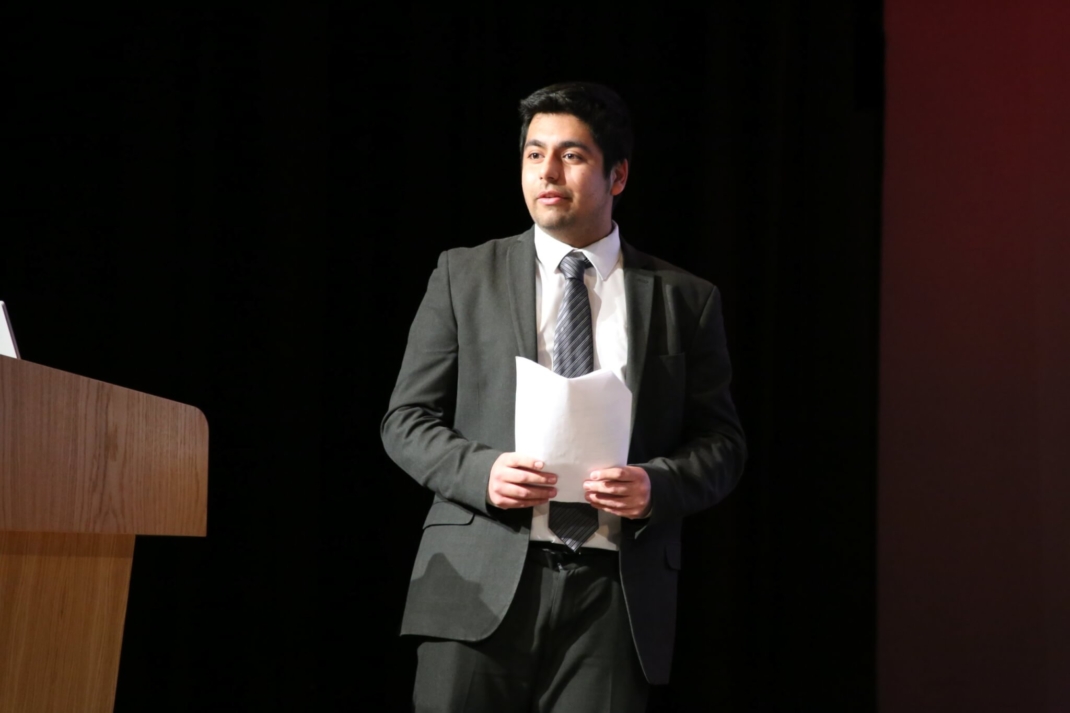
After the event, the John Lyon pupils spoke about their experiences.
Madisan said: “Talks-on-the-Hill was a very overwhelming experience. As I am a very inquisitive person, I found out answers that I had questions to. Delivering the talk was the hardest part, as my heart was not pounding, but aching, as I did not want to mess up in front of the school and the public. What helped me to get through is the knowledge that if I have seen other people my age do it, why can’t I do it?”
Rayyan said: “This event was remarkable! I got to talk on a topic I am very keen on. As I grabbed the microphone on the stage it felt silent but that later turned into laughs and joy as I began to connect and engage with the audience.”
Rafay said: “Talks-on-the-Hill was a great experience. It made my confidence grow and my public speaking strength better. At the beginning, it was frightening to stand up on the stage as it was my first time, but once I started speaking, the words just came out without any effort.”
Harjeevan said: “I felt that speaking at Talks-on-the-Hill was a great experience, but I initially found it to be quite daunting. I built up my confidence by researching the topics and got lots of encouragement from my teachers.”
Read the speakers’ full reflections on the John Lyon Blog.
John Lyon’s Excellence Programme seeks to provide added opportunities for pupils who wish to aim high in different areas of School life.
The School’s Excellence Team provides activities to enrich and challenge all pupils. This may involve trips to cultural events or mind-stimulating lectures as well as
in-house workshops and discussion groups.
Older students are encouraged to run workshops for younger pupils and act as leaders on trips. Pupils on the Excellence Programme also have use of the 1876 Reading Room, a quiet space designed for individual study. Here they can access a variety of books, publications and research for furthering their knowledge.
Excellence Programme guests have included scientist Lord Robert Winston, BBC journalists Laura Kuenssberg and Emily Maitlis, Olympic champion Sir Matthew Pinsent, Culture Secretary Baroness Morgan and Sweden’s Ambassador to the UK Torbjörn Sohlström.






















































 We provide a wide range of sporting activities and opportunities for all pupils.
We provide a wide range of sporting activities and opportunities for all pupils. At our Prep School we concur with educational theorists who emphasise the importance of the creative mind and ‘emotional intelligence’ and ‘wellbeing’ – the need to develop the whole personality and our pupil’s imaginations especially. Drama has the power to liberate the mind.
At our Prep School we concur with educational theorists who emphasise the importance of the creative mind and ‘emotional intelligence’ and ‘wellbeing’ – the need to develop the whole personality and our pupil’s imaginations especially. Drama has the power to liberate the mind. We encourage our pupils to become healthy, independent and responsible members of society.
We encourage our pupils to become healthy, independent and responsible members of society.  At our Prep School, Computing covers the use of electronic technology in all its forms, including computers and other communication devices.
At our Prep School, Computing covers the use of electronic technology in all its forms, including computers and other communication devices. • What is religion?
• What is religion?
 Art is an integral part of our Prep School’s curriculum, providing our pupils with a unique means of expressing their ideas by allowing them to explore new thoughts and give life to their creative minds.
Art is an integral part of our Prep School’s curriculum, providing our pupils with a unique means of expressing their ideas by allowing them to explore new thoughts and give life to their creative minds. History is taught throughout the School and pupils are encouraged to find out about events and peoples.
History is taught throughout the School and pupils are encouraged to find out about events and peoples. Planet Earth is our only home. It is an mind-blowing, diverse and constantly changing place of awesome beauty and power.
Planet Earth is our only home. It is an mind-blowing, diverse and constantly changing place of awesome beauty and power.  French is the language of our nearest neighbours, probably the easiest foreign language for English speakers to learn and, after English, one of the most widely-learned languages worldwide.
French is the language of our nearest neighbours, probably the easiest foreign language for English speakers to learn and, after English, one of the most widely-learned languages worldwide. The core of every science lesson at our Prep School is about developing every pupil’s curiosity in the world around them.
The core of every science lesson at our Prep School is about developing every pupil’s curiosity in the world around them.  Mathematics is a key subject for children of all ages at our Prep School.
Mathematics is a key subject for children of all ages at our Prep School. English is taught using lively and creative methods through a variety of texts and resources incorporating ICT from Pre-Prep onwards.
English is taught using lively and creative methods through a variety of texts and resources incorporating ICT from Pre-Prep onwards.